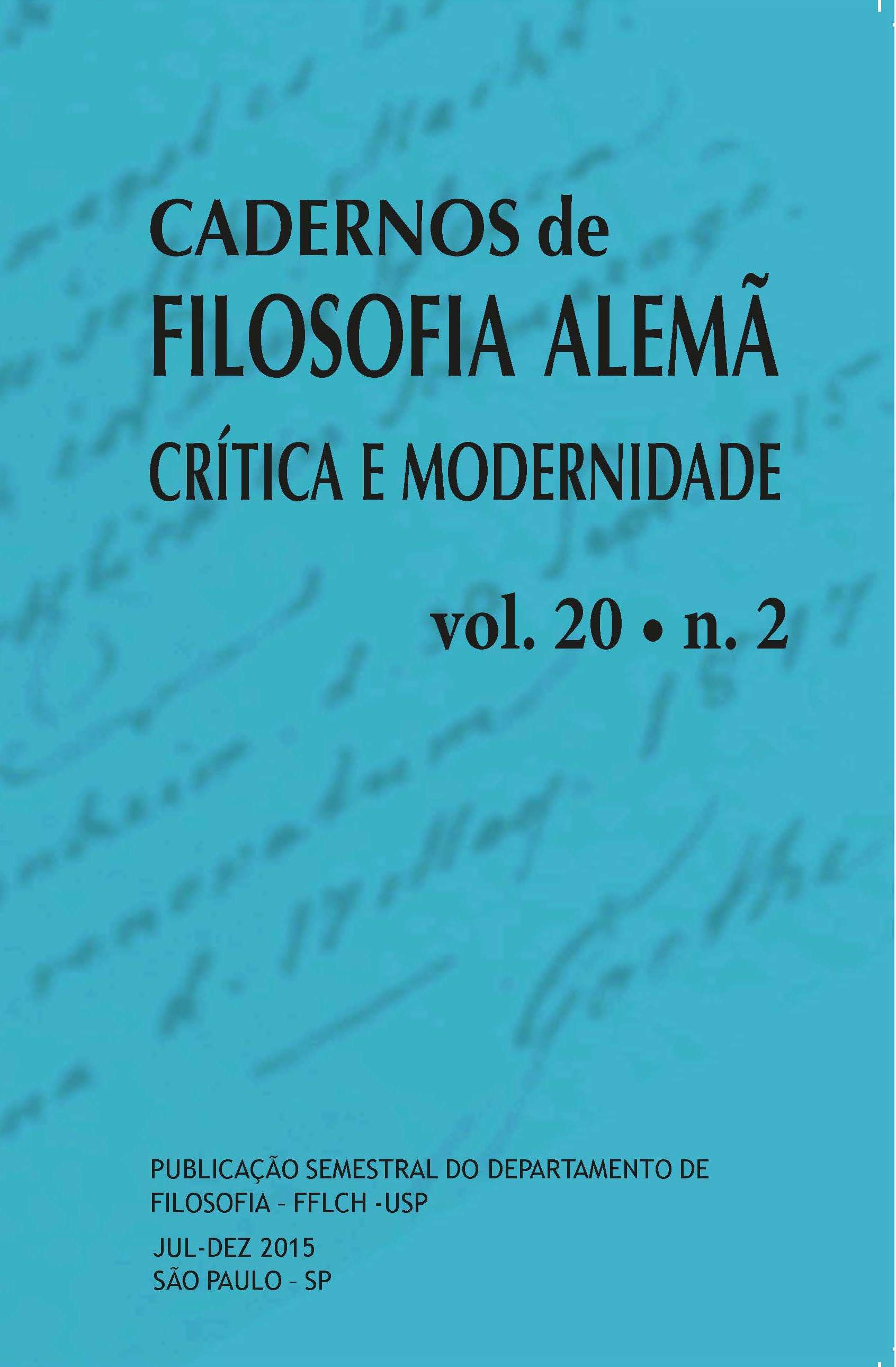O volume I da História da Inglaterra e o debate constitucional inglês: Hume contra a ideia de lei fundamental
DOI:
https://doi.org/10.11606/issn.2318-9800.v20i2p37-65Palavras-chave:
Hume, História da Inglaterra, lei fundamentalResumo
No volume I da História da Inglaterra, Hume trata de três tópicos importantes da história inglesa em função do modo como foram interpretados e mobilizados pelos partidos em disputa nodebate constitucional inglês dos séculos XVII e XVIII. A partir da reconstrução da posição de Hume com relação a esses tópicos (a constituição saxã, a conquista normanda e a Magna Carta), pretende-se mostrar como Hume recusa a ideia de lei fundamental que esteve no centro desse debate, para ver emergir a partir daí a sua própria concepção da lei enquanto instituição social.Downloads
Referências
BAIER, A. The cautious jealous virtue: Hume on justice. Cambridge/ London: Harvard University Press, 2010.
BRADY, R. An historical treatise of cities and burghs or boroughs. London: Browne, 1711 (re-print Gale ECCO print editions).
BUCKLE, S. Natural Law and the Theory of Property. Grotius to Hume. Oxford: Clarendon Press, 1991.
COKE, E. The second part of the Institutes of the law of England. London: Brooke, 1797 (re-print ULAN press).
GIARRIZZO, G. David Hume politico e storico. Torino: Einaudi, 1962.
GOUGH, J. W. Fundamental Law in the English Constitutional History. Oxford: Oxford University Press, 1955. Tradução francesa: Paris: PUF, 1992.
HAAKONSSEN, K. The science of a legislator: the natural jurisprudence of David Hume and Adam Smith. Cambridge: Cambridge University Press, 1981.
HUME, D. Enquiries concernig the principles of morals. Selby-Bigge (ed.). Oxford: Clarendon Press, 1975.
___________. The History of England, 6 vols. Indianapolis: Liberty Fund, 1983.
___________. Essays Moral, Political and Literary. Miller, E. (ed.). Indianapolis: Liberty Fund, 1985.
___________. A Treatise on Human Nature. Selby-Bigge/ Nidditch (eds). Oxford: Clarendon Press, 1989.
McARTHUR,N. David Hume’s political theory, law, commerce, and the constitution of government. Toronto: University of Toronto Press, 2007.
PIMENTA, P.P. A imaginação crítica, Hume no século das Luzes. Rio de Janeiro: Azougue, 2013.
POCOCK. J. G. A. The ancient constitution and the feudal law. New York: Norton library, 1967.
___________. Barbarism and Religion, II. Cambridge: Cambridge University Press, 1999.
KAMES, H. H. Essays upon several subjects concerning British antiquities. London: M. Cooper, 1749 (Nabu Public Domain Reprints).
___________. Historical Law-tracts. Edinburgh: A. Kincaid, 1761 (The lawbook exchange, Ltd. Union, New Jersey, 2000).
SMITH, R. J. The gothic bequest, medieval institutions in British thought, 1688-1863. Cambridge: Cambridge University Press, 1987.
THOMPSON, F. Magna Carta, its role in the making of the English constitution (1300-1629). Minneapolis: The University of Minnesota Press, 1948.
WALDRON, J. A Dignidade da Legislação. São Paulo: Martins Fontes, 2003.
WEIN, S. David Hume and the empiricist theory of law. Man and Nature, 9, 1990, pp.33-44 (reeditado em Mackinnon, K. Hume and Law, Ashgate, 2012, pp.23-34)
WESTON, C. C. “L’Anglaterre: l’ancienne constitution et le droit commun”, In: Burns, J. H. (org.) Histoire de la pensée politique moderne, 1450-1700. Paris, PUF, 1997.
Downloads
Publicado
Edição
Seção
Licença
As informações e conceitos emitidos em textos são de absoluta responsabilidade de seus autores.
Todos os artigos anteriores a 5 de julho de 2018 e posteriores a julho de 2021 estão licenciados sob uma licença CC BY-NC-ND, exceto os publicados entre as datas mencionadas, que estão sob a licença CC BY-NC-SA. A permissão para tradução por terceiros do material publicado sob a licença CC BY-NC-ND poderá ser obtida com o consentimento do autor ou autora.
Políticas de acesso aberto - Diadorim



